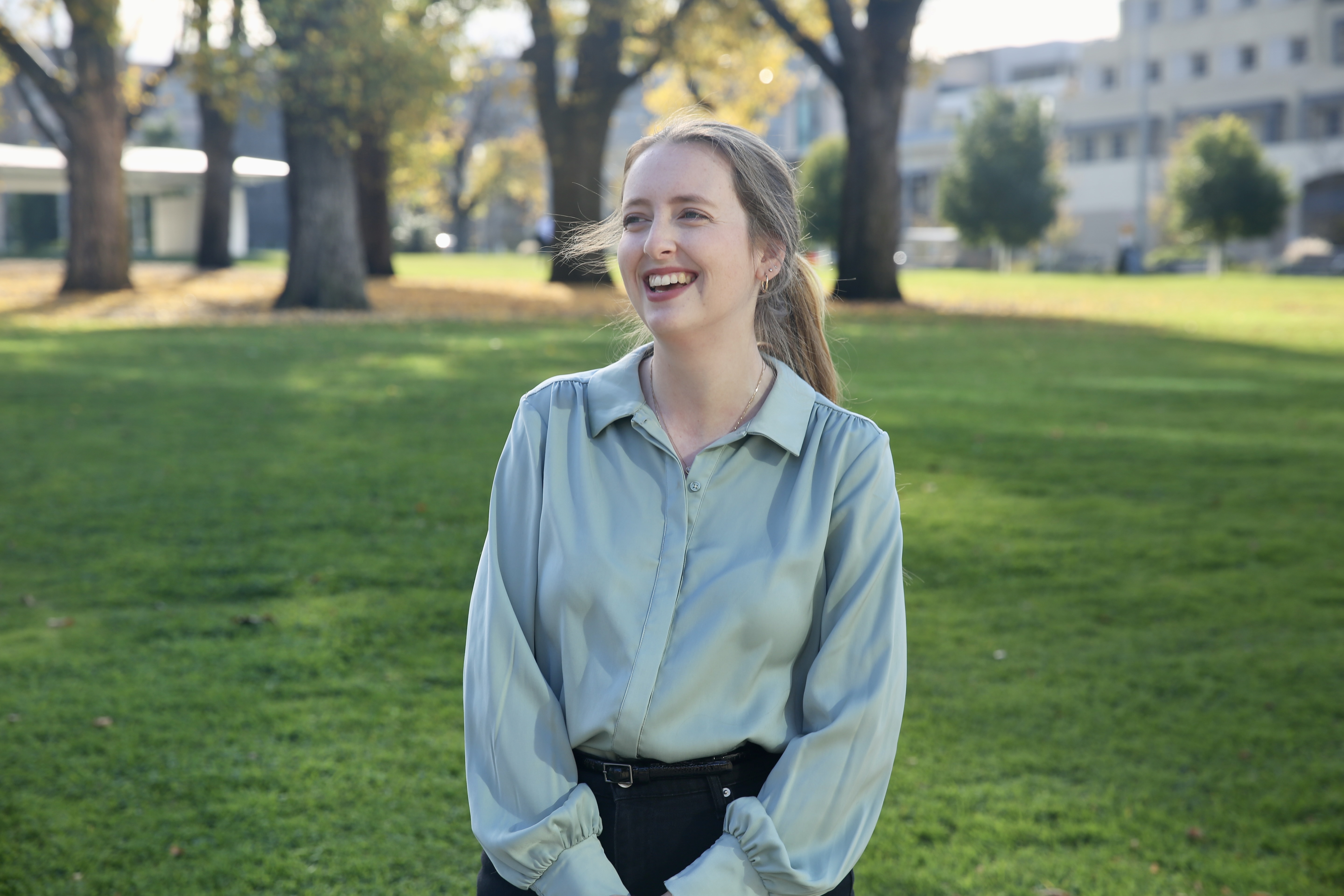Combating the spread of misinformation and disease: vaccine safety researcher selected for L’Oréal-UNESCO For Women in Science Mentoring Program

Researcher Hannah Morgan has been selected as one of five Australian and New Zealander women for the L'Oréal-UNESCO For Women in Science Mentoring Program, an initiative aimed at cultivating female STEMM (Science, Technology, Engineering, Maths, Medicine) leadership.
Ms Morgan, an epidemiologist and researcher whose PhD is dedicated to improving monitoring of vaccine safety and community education, was selected as one of four Australians to participate in the program. The third-year PhD candidate’s current research focusses on the Vaccine Safety Health Link, a database that allows researchers to understand and respond to potential vaccine side effects.
The work is especially important following the COVID-19 pandemic, when the need to respond to community concerns in a transparent and timely way came to the forefront in overcoming vaccine hesitancy and encouraging broad uptake of all available vaccines.
The Vaccine Safety Health Link contains anonymised and de-identified routine healthcare data that is only accessible to researchers such as Ms Morgan whose research has a consent waiver under the National Statement on Ethical Conduct in Human Research. By linking these data sets to vaccination data, researchers can understand healthcare experiences at a population level, helping to inform when, how and to whom vaccines are best administered. The information is also an important additional source of knowledge, capturing population groups who may not be as well represented in clinical trials. The research is used to rapidly confirm or disprove reports of adverse reactions to vaccines, making it a vital tool for community safety and maintaining public trust in vaccines.
Speaking about her research, Hannah said that she was grateful to be working in an area of large-scale, immediate public health impact that “contributes to safety and confidence in vaccines for millions of people.”
“Through my PhD, I am taking every opportunity to sharpen my technical skills in surveillance, data linkage, epidemiology, and biostatistics. I have also enjoyed the project management aspect, which allows me to work with people from a broad range of backgrounds to undertake this huge and challenging project.” She said.
In addition to her study, Hannah is a lecturer in epidemiology at the University of Melbourne. Her work teaching undergraduate students is part of what encouraged her to apply for the L’Oréal-UNESCO program, knowing that it would help her develop skills to encourage other women.
“I am constantly seeking ways to improve as a scientist, leader, and advocate for young women in science. I am looking forward to the opportunity to grow my own career as a researcher and I also aspire to become a better mentor for the students I teach.
I thoroughly enjoy lecturing and am proud that the students I teach can see a young woman standing in front of them at the lectern. I am often approached by young women seeking career advice, and I strive to be the best mentor I can be. Fostering a supportive cycle of women helping other women is crucial, especially in STEMM.”
Running since 2017, the L’Oréal-UNESCO mentoring program involves regular meetings between an alum Fellow mentor and mentee as well as monthly workshops facilitated by the For Women in Science team. Mentors and mentees are matched based on the mentor’s skills and experience and the mentee’s ambitions and focus.
Ms Morgan said that she’s “looking forward to being a part of a network of young women in predominately male fields where we can support and encourage each other to chase our dreams without limits.”
“It is a huge honour to have been selected for the L'Oréal-UNESCO For Women in Science Mentoring Program amongst many other talented applicants.” She said.
You can read more about Ms Morgan’s research on Pursuit.